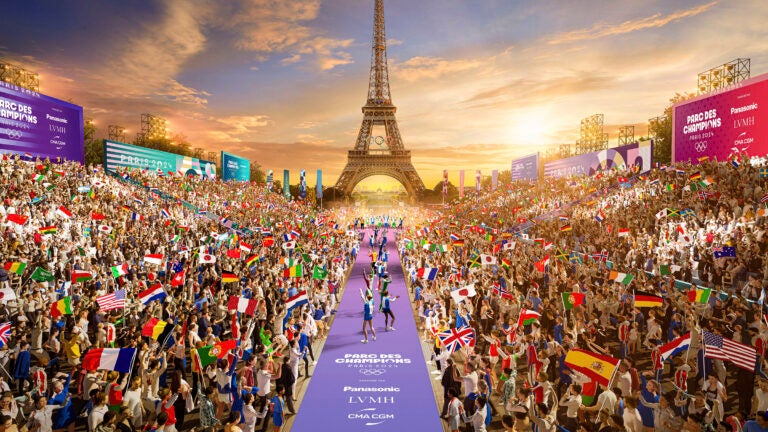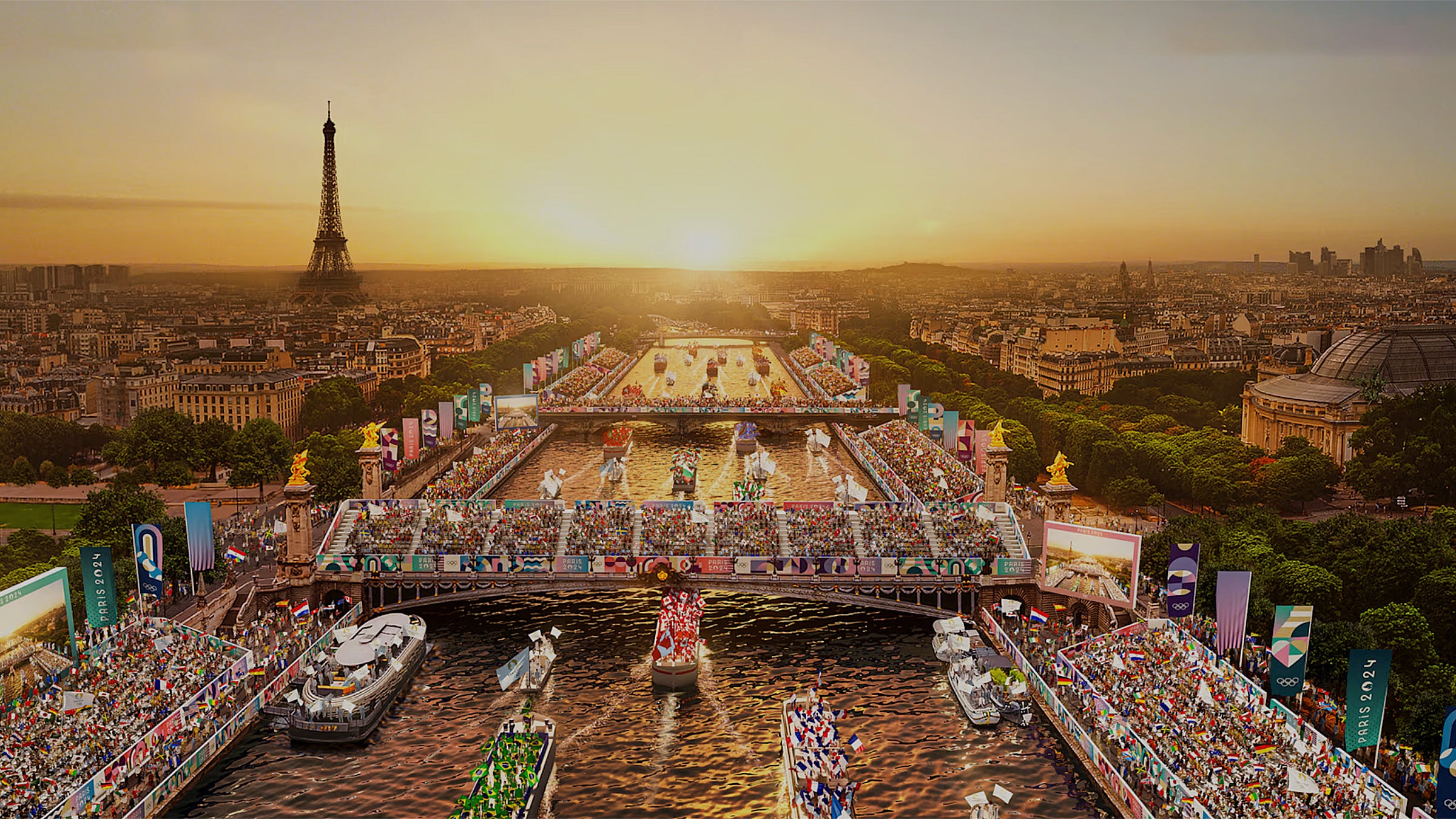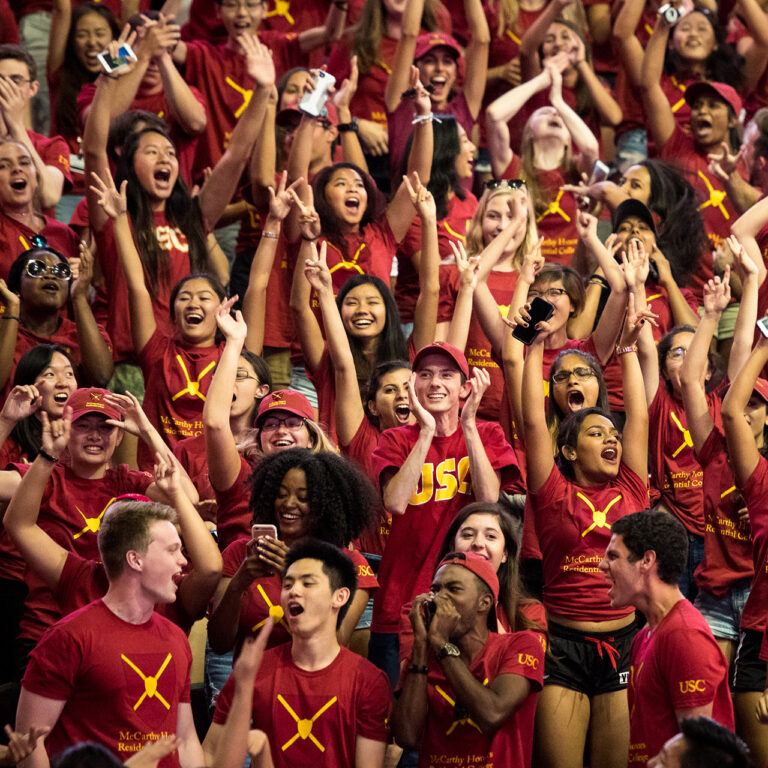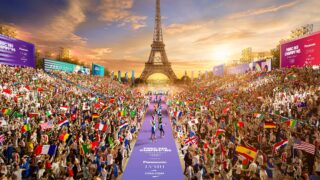In its Olympic Charter, the International Olympic Committee maintains a strong position against the politicization of sport. But reality often intrudes. (Image/©Paris2024)
Policy/Law
Paris 2024: Geopolitics and the Olympics
USC experts in international relations and foreign policy discuss how the Olympics shape — and are shaped by — global politics.
When French historian and educator Baron Pierre de Coubertin founded the modern Olympics in 1894, he did so with a vision of promoting peace through sport. In reality, the Olympics have often reflected the geopolitics of the period.
Tensions flared Wednesday when Olympic officials moved to crush U.S. probes into a Chinese doping scandal. Multiple wars rage, political instability is shaking France and anxiety mounts about the U.S. presidential election. Can Olympic victories translate into geopolitical wins?
“International sporting events have become thoroughly politicized, and given the chaos around the globe, we can expect many acts of protest and disruption both inside and outside the stadiums of Paris,” said Robert English, an associate professor of international relations, Slavic languages and literature and environmental studies at the USC Dornsife College of Letters, Arts and Sciences.
“We live in an era in which reputation is central to the security of nations. A mega-event like the Olympics becomes a key platform to the host and participants alike,” said Nicholas Cull, a historian and expert in public diplomacy, foreign policy and media at the USC Annenberg School for Communication and Journalism. “International actors compete to showcase their own strengths and reveal the weaknesses of their adversaries, real or imagined.”
Geopolitics and the Olympics: Games are apolitical in theory, but not in practice
Though the International Olympic Committee maintains a strong position against the politicization of sport in its Olympic Charter, reality often intrudes.
“In the world we have, we know that the Olympics are political. The U.S. boycotted the 1980 Moscow Olympics because of the Soviet invasion of Afghanistan, and earlier, in 1968, two Black American runners raised their fists in a Black power salute on the winners’ podium,” said Gregory Treverton, a professor of the practice of international relations and spatial sciences at USC Dornsife.
Treverton, who served as chairman of the U.S. National Intelligence Council from 2014 to 2017 and previously worked for the first Senate Select Committee on Intelligence, where he handled Europe for the National Security Council, said that the main benefit of the Olympics from a political perspective is probably the athletes themselves, as they get to know their counterparts from other countries.
As athletes interact, they participate in a unique cultural exchange that only an event like the Olympics can provide, experts say.
Geopolitics and the Olympics: Games a platform for public diplomacy?
Cull, a professor of communication at USC Annenberg, said he’ll be watching athletes from smaller, lesser-known countries whose potential Olympic victories could have broader political ramifications.
He notes that Kosovo’s 2016 Olympic success in women’s judo was a “massive deal,” which bolstered the nation’s argument to be recognized as a nation in its own right rather than a runaway province of neighbor Serbia.

Experts predict news headlines to center on the performances of U.S., Chinese and Russian athletes. Competitors from Russia and its ally, Belarus, will participate as Individual Neutral Athletes, without national flags or anthems, and will be excluded from the official medal table.
“Russia is effectively banned from the 2024 Summer Olympics because of its war in Ukraine. Ideally, this ban would work as another sanction to pressure Russia to stop the war,” English said. “Practically, it will have zero such effect and mainly serves to further alienate ordinary Russians from the West.
“It is also seen by many as hypocritical when the Israeli Olympic team can compete despite the carnage of Israel’s war in Gaza,” he added, noting that the U.S. faced criticism when its athletes competed internationally despite the U.S. invasion of Iraq.
USC Professor Jonathan Aronson warned that the high-profile nature of the Olympics brings with it the potential for demonstrations or acts of violence, a Russian attack in Ukraine aimed at distracting global attention, efforts by right-wing French or European Union factions to undermine President Emmanuel Macron, road closures and travel disruptions, or a major cyberattack that could disrupt events.
“If the Olympics proceed without significant disruptions, it will be considered a major success and a huge relief for the organizers,” said Aronson, a professor of communication at USC Annenberg and a professor of political science and international relations at USC Dornsife.
The expert in international relations, communications, globalization and trade negotiations added: “While there will be many touching personal stories during the Olympics, it is unrealistic to expect a widespread moment of public diplomacy or a unifying atmosphere.”
Featured Experts
Jonathan Aronson
Expert in international information and communication policy, global governance, globalization, international political economy, international trade relations, wireless communications, and the international economy, intellectual property, the Internet and global communication, international intellectual property protection, U.S. trade policy, multilateral trade negotiations and Net neutrality
Nicholas Cull
Expert in public diplomacy past, present and future, international propaganda, propaganda and counter-propaganda in World War II, Vietnam and since, representations of history in film and TV, images of President John F. Kennedy, political impersonations, Anglo-American relations, British political history, history of US foreign policy, Cold War in fact and popular culture including spy stories and allegory., Science fiction and images of the future in British and US film & TV, Empire and Imperialism in British and US film & TV, Propaganda and media history of apartheid/anti-apartheid and Representation of Down syndrome in the media
Robert English
Expert in the domestic and foreign politics of Russia and the former Soviet Union, Eastern Europe and the Balkans –, East European politics, ethnicity, identity and nationalism in Eastern Europe and the former U.S.S.R., Russian intellectual history, the political history of Europe since World War II and international foreign policy and defense analysis

